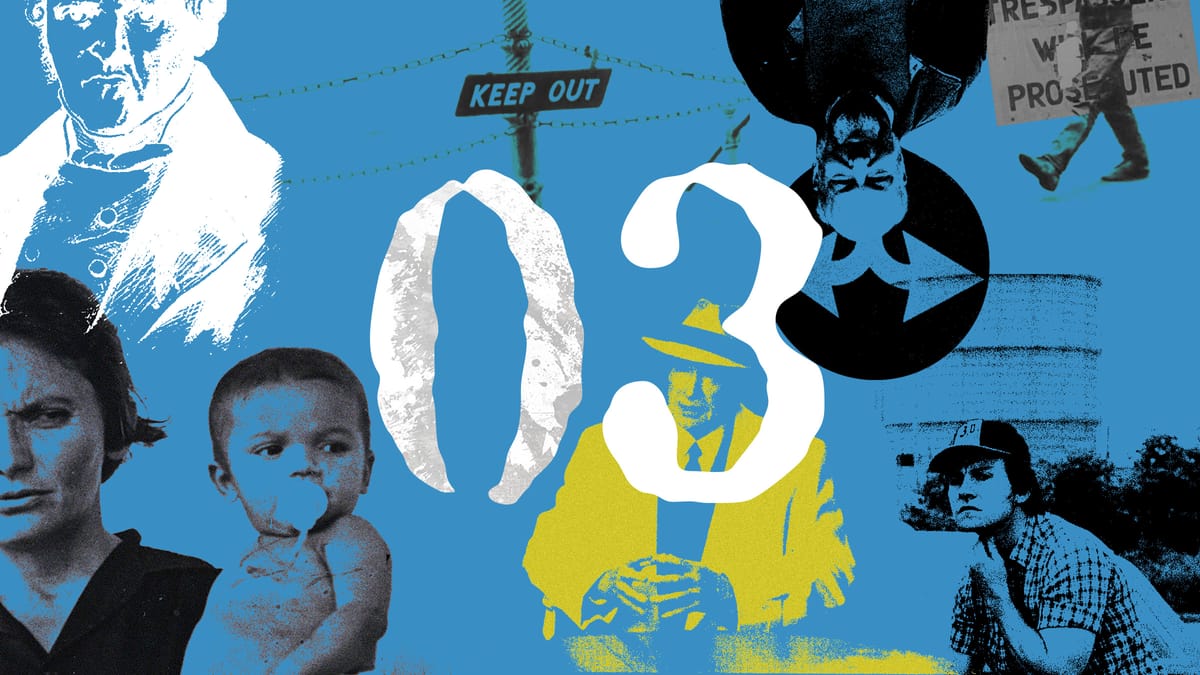On Film Criticism #15: Struggle

Artwork by Neven Udovičić
The upcoming edition of the Cannes Film Festival is bracing itself for possible interruptions by striking workers this week, who would certainly ensure their voices were heard by making the screens go dark. Simultaneously in the United States, screenwriters are striking to protest unfair working conditions and make a stand against the devaluation of their work.
These intersections of social struggle and cinema are only the tip of the iceberg, the most visible examples of the way cinema has always had a role to play in addressing inequality and unveiling its mechanisms. Film criticism too can be part of the fight, pulling away from the conception of films as mere commodities and helping to reveal their subversive power.
Ruairí McCann’s essay on Brazilian filmmaker Eduardo Coutinho’s documentary Man Marked for Death, 20 Years Later (1984) outlines the way a filmmaker ended up becoming a part of struggle simply by trying to tell the story of that fight and its people, at a time when it inconvenienced those in power. Cinema, there, also works as a document of memory against its erasure by the ‘winners’ of history.
Although Paul Schrader’s Blue Collar (1978) and Dog Eat Dog (2016) are fiction films, Bharathan C demonstrates that they perfectly capture the political and economic realities of the times in which they are set — two different stages in the gradual disintegration of economic livability in the United States — as well as the different survival tactics of those trying to survive them.
Elena Lazic looks at Stop Laughing, This is England (1963), a long forgotten short film based on pictures and observations by French photographer Henri Cartier-Bresson. Under the airs of an innocuous little film about people in the North of England at work and at play, the film in fact still holds up sixty years later as a brutally accurate description of “a disapproving people.”
In shockingly un-British fashion, Daniel Bird writes about the French philosopher Charles Fourier, imagining Serbian filmmaker Dušan Makavejev waking up from a 50-year slumber in 2023 to pitch in Cannes a film about the man who believed that the solution to all of the world’s problems would be to collapse work into pleasure, and “do away with marriage, monogamy, and the family.”
Film writing can also take a more directly militant form, as in Fedor Tot’s essay: a proposal to rethink laws around film rights and distribution so as to ensure that film prints can actually be seen rather than languish in the dark.
There are good news and bad news. The collective that occupied the cinema La Clef in Paris, before being evicted by the building's owner, is on its way to buying the place, making the dream of an independent, associative film theatre come true. Meanwhile, the Clermont-Ferrand International Short Film Festival has unexpectedly found itself faced with a severe budget cut from the regional fund that could very well jeopardise its future. Each of these struggles is proof, if it ever was needed, that cinema and social reality can only ever be conceived as entirely separate in the imagination.



